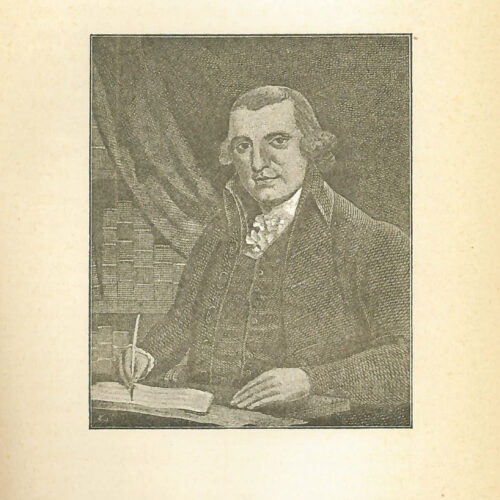

Elhanan Winchester was the first minister of the dissenting congregation that eventually became the humanist South Place Ethical Society in London. Winchester and his followers, who rejected the doctrine of eternal damnation, met from 14 February 1793 at Parliament Court Chapel, Artillery Lane, as Universal Baptists. Over the course of the next two centuries, this congregation would move from Baptist, through Unitarianism, to ever-increasing humanism, and is still in existence today as Conway Hall Ethical Society, a humanist educational charity.
Elhanan Winchester was born near Boston, Massachusetts, the son of a farmer. Beginning as a Calvinist Baptist preacher, Winchester gradually became convinced of mankind’s universal and assured salvation, resulting in a dismissal from his church and the assembly of a new, Universal Baptist, congregation.
In 1787, Winchester travelled to England, and the following year published his widely read and best known work, The universal restoration: exhibited in a series of dialogues between a minister and his friend. While in England, Winchester published twenty-one works, preaching across the country and even elsewhere in Europe.
The Parliament Court Chapel was comprised, as Moncure Conway described it a century later, of those who:
had come out of various sects, and brought discordant prejudices… [but] had now to depend on each other… to give up some tradition, or subordinate it, and translate their doctrine of divine love into mutual forbearance and affection.
Their name, The Philadelphians, meant ‘loving brothers’. Winchester condemned the slave trade, as well as denouncing capital punishment, as Conway would himself decades later.
Winchester died aged just 46, on 18 April 1797 in Connecticut, across the ocean from his congregation. They nevertheless honoured him in a memorial service at Parliament Chapel, led by his successor William Vidler. He was predeceased by four wives and all eight of his children.
In his Centenary History of South Place, Moncure Conway notes of Elhanan Winchester’s first congregation that:
in their doctrine of universal redemption there was an essential spirit and force of humanity which, after the pattern of a new heaven, must inevitably shape the vision of a new earth.
These early dissenters sowed the seeds of an Ethical Society that would maintain a belief in this ‘essential spirit and force of humanity’, even as that in heavenly reward and religious worship dwindled and was let go.
Read more
Oxford Dictionary of National Biography: Elhanan Winchester
Dictionary of Unitarian and Universalist Biography: Elhanan Winchester
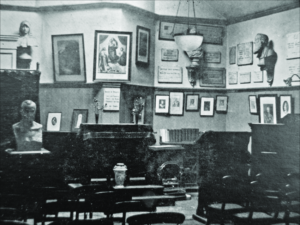
No creative thinker has so governed… my mind as the French genius who framed the maxim – “Love for principle, […]
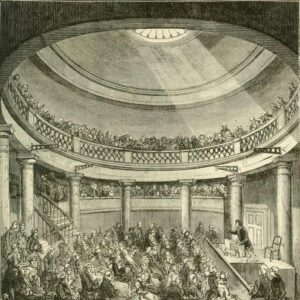
In the absence of a better—the palladium of what liberty we have… the birthplace of mind, and the focus of […]
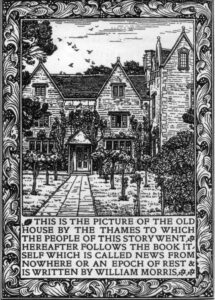
Kelmscott Manor was the country home of the writer, designer, and socialist William Morris from 1871 until his death in […]
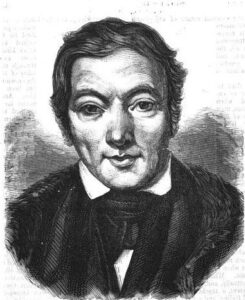
Robert Owen was a utopian socialist, philanthropist, and reformer, whose own religious scepticism fostered his desire for a secular society, […]